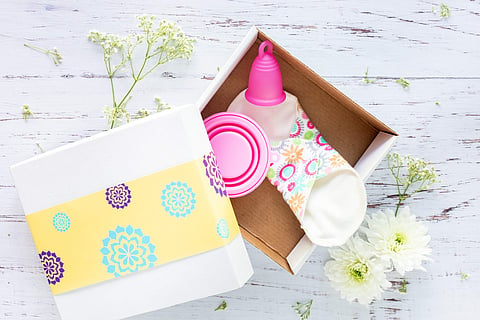
- LIFESTYLE
- FASHION
- FOOD
- ENTERTAINMENT
- EVENTS
- CULTURE
- VIDEOS
- WEB STORIES
- GALLERIES
- GADGETS
- CAR & BIKE
- SOCIETY
- TRAVEL
- NORTH EAST
- INDULGE CONNECT

The average age for the first period is between 10 and 12 years. You can expect the first period to start earlier if your body mass index is more than average or later if you are underweight, undergoing stress or having hormonal imbalance.
The first signs of puberty are breast growth followed by growth of underarm and pubic hair, increase in height and change of body shape. Approximately two years after the first signs of puberty, you can expect your first period to start. This can range between six months to three years.
In spite of various signs of puberty, if bleeding does not start by the age of 15, please consult your gynaecologist who will need to examine you and will then ask for relevant investigations which might include ultrasound and blood hormone assays.
What are the early signs?
The immediate preceding signs mostly include (but are not always a dictum):
What colour will my first period be?
The colour can vary from dark brown to bright red to dark red.
How much can I expect to bleed?
The nature of the first period can vary from mild spotting to slightly heavier flow with small clots.
How long will my first period last?
For some girls, the first period might only be spotting for a couple of days. For others, it can last for a week. The average duration of a period is between two-seven days.
For the first three years after the period starts, the number of days of flow, as well as the gap between two periods, can fluctuate, occurring once in two-three months or even longer.
Consult your gynaecologist if:
Self-care tips
For the first period
When you notice blood after using the toilet or if your clothes get stained, try to get any absorbent material like tissue paper and place it on your underpants as a temporary measure. Inform your
trusted adult for further guidance.
Based on personal preferences, the choice of menstrual hygiene products range from period underwear to sanitary napkin to tampons to menstrual cup. Educate yourself about the pros and cons of each, and experiment with a couple of options, which will then help you choose the right choice based on your lifestyle.
Cramps
Use a hot water bag on the lower abdomen. Drink warm fluids. Use over-the-counter painkillers like Paracetamol or Mefenamic acid to relieve your pain. Keep yourself physically active
The first period, like all first experiences in life, can be daunting and terrifying, but as you settle down, armed with the right information, you will understand your body the best
Menstrual hygiene
(The author is a senior consultant, obstetrics & urogynaecology, Fortis Hospital, Richmond Road)